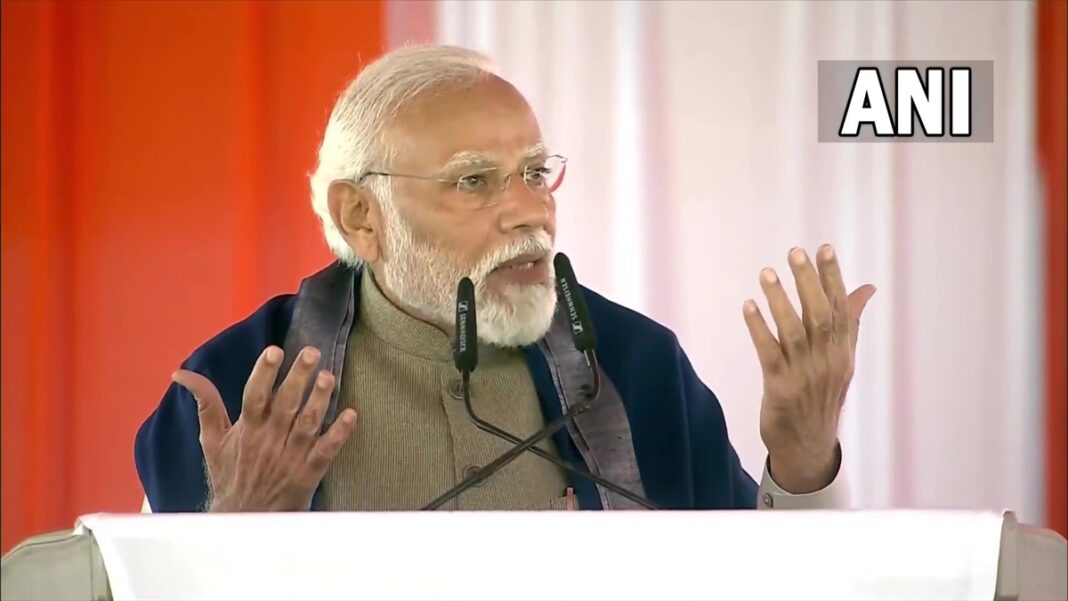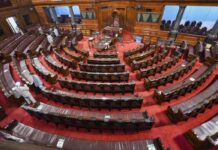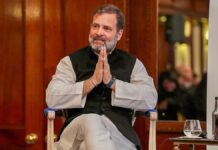X: @the_news_21
Hours after Indian Overseas Congress head Sam Pitroda made a racist remark, Prime Minister Narendra Modi launched a scathing attack on the grand old party, accusing it of insulting Indians based on their skin color.
“I can tolerate it when abuses are hurled at me, but not when they are hurled at my people. We will not accept this racist mentality,” asserted the prime minister, reflecting the gravity of the situation.
Modi’s remarks were triggered by Pitroda’s statement, in which he compared people in India’s East to Chinese and those in the South to Africans. This sparked widespread condemnation, with Modi expressing solidarity with President Droupadi Murmu, who has faced similar criticism due to her skin color.
“I was thinking a lot that Droupadi Murmu, who has a very good reputation and is the daughter of Adiwasi family, then why is Congress trying so hard to defeat her but today I got to know the reason. This means that you are abusing several people of the country on the basis of their skin color,” Modi exclaimed during a rally in Telangana’s Warangal.
The Prime Minister’s remarks reverberated across the political spectrum, with Chief Ministers from BJP-ruled states in the Northeast, such as Assam and Manipur, demanding an apology from the Congress. Manipur CM N Biren Singh accused the opposition party of having a hidden agenda to divide India on religious grounds, further exacerbating tensions.
Union Finance Minister Nirmala Sitharaman also weighed in on the controversy, highlighting the diversity within India and condemning the racist mentality perpetuated by Pitroda and his ilk. “But for the racist mentor of Rahul Gandhi, we all look African, Chinese, Arab, and the White,” Sitharaman stated on social media, echoing the sentiments of many who were outraged by Pitroda’s comments.
In response to the uproar, veteran Congress leader Jairam Ramesh distanced the party from Pitroda’s remarks, describing them as “most unfortunate and unacceptable.” He emphasized that the Indian National Congress completely dissociates itself from such analogies, underscoring the party’s commitment to inclusive and respectful discourse.
As the controversy continues to unfold, it serves as a stark reminder of the importance of responsible and sensitive language in public discourse, especially in a diverse and multicultural society like India.








Your point of view caught my eye and was very interesting. Thanks. I have a question for you. https://www.binance.com/en-NG/register?ref=JHQQKNKN
Thank you for your sharing. I am worried that I lack creative ideas. It is your article that makes me full of hope. Thank you. But, I have a question, can you help me? https://accounts.binance.info/en-IN/register?ref=UM6SMJM3
kuwin sở hữu kho game đa dạng từ slot đến trò chơi bài đổi thưởng, mang đến cho bạn những giây phút giải trí tuyệt vời.
专业构建与管理谷歌站群网络,助力品牌实现全域流量的强势增长。谷歌站群
Tham gia cộng đồng game thủ tại Go88 để trải nghiệm các trò chơi bài, poker phổ biến nhất hiện nay.
Khám phá thế giới giải trí trực tuyến đỉnh cao tại MM88, nơi mang đến những trải nghiệm cá cược thể thao và casino sống động.
I have not checked in here for some time since I thought it was getting boring, but the last few posts are good quality so I guess I will add you back to my daily bloglist. You deserve it my friend 🙂